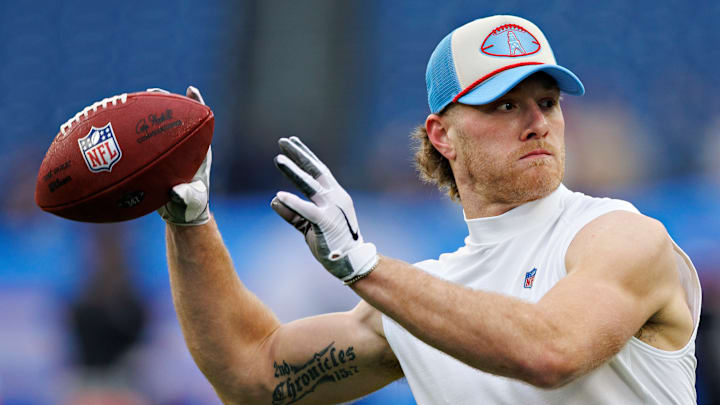In the quiet corners of life, sometimes football still finds a way to matter.
The story began not on the field or in the locker room, but on Facebook — a post from a woman named Tricia Cox Gravens, asking not for prayers or donations, but for a moment. A sliver of time. A small act that could make a terminally ill boy smile.
He was a hospice patient. His time was running out. And he loved the Tennessee Titans and Kentucky football.
The team had already sent a care package. But Tricia’s post carried something heavier: the ache of a final wish.
She wrote that he was also a massive Kentucky football fan. His heroes wore blue and white. His Sundays were painted Titans navy, but his Saturdays had been all about Kentucky.
The post traveled — as good things sometimes do — from Facebook to X (formerly Twitter), where a Wildcat fan shared it again. And somehow, through the maze of timelines and mentions and retweets, it found Will Levis.
You know Will Levis — the cannon-armed quarterback. The coffee-with-mayo, eat-the-banana-whole, Kentucky-to-the-NFL quarterback. He didn’t quote tweet. He didn’t tag the team. He sent a DM.
He asked for the information. And then, quietly, he made a plan.
Not a PR plan. Not a media push. Not a feel-good moment for the cameras.
Just a visit.
A few days later, Will Levis showed up. Alongside him was Colton Dowell, the Titans wide receiver.
They didn’t come with a camera crew. They didn’t bring a press release. They brought themselves.
Two NFL players. One terminally ill boy. A room full of emotion. There’s something sacred in those visits, something words can never quite touch. A raw and real energy of people coming together to lift each other up by simply visiting each other.
For Levis, it wasn’t about throwing a football or signing an autograph.
It was about being human.
And in a world where sports can so often feel like shouting and stats and salaries, it’s easy to forget what they’re capable of. But in that room, none of that mattered. It wasn’t about the Titans’ win-loss record or the depth chart. It was about connection.
In the end, sports won’t save us. Not from cancer. Not from grief. Not from time. But once in a while, sports can show up like a warm light in a dark room.
Once in a while, a quarterback walks through the door, and a patient forgets he’s dying — because he’s too busy smiling.
